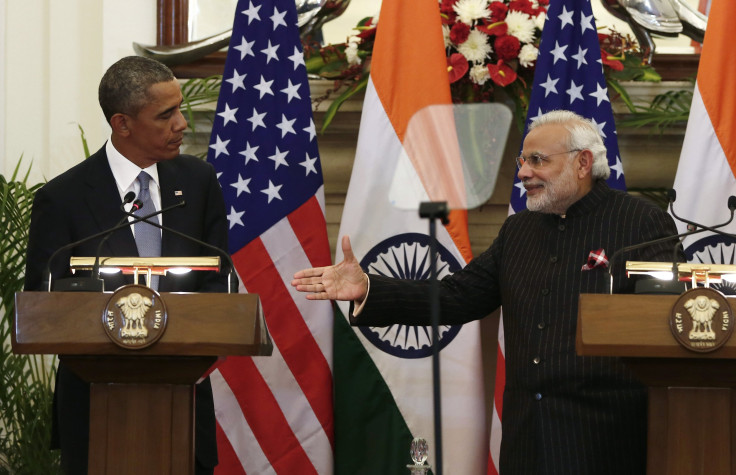Gandhi Would Have Been Shocked At Acts Of Intolerance In India, Obama Says

Just days after U.S. President Barack Obama said in New Delhi that India will succeed as long as it is not “splintered” along religious lines, he has again spoken out against “acts of intolerance,” which he said, “would have shocked Gandhiji, the person who helped to liberate that nation.”
“Humanity has been grappling with these questions throughout human history. And lest we get on our high horse and think this is unique to some other place, remember that during the Crusades and the Inquisition, people committed terrible deeds in the name of Christ. In our home country, slavery and Jim Crow all too often was justified in the name of Christ,” Obama said in his National Prayer Breakfast address in Washington on Thursday, which was also attended by the Dalai Lama, who heads a Tibetan government in exile from India.
“Michelle and I returned from India -- an incredible, beautiful country, full of magnificent diversity -- but a place where, in past years, religious faiths of all types have, on occasion, been targeted by other peoples of faith, simply due to their heritage and their beliefs -- acts of intolerance that would have shocked Gandhiji, the person who helped to liberate that nation,” he went on to say, referring to his three-day trip to India, where he was the chief guest at the country’s Republic Day function. Obama's trip was viewed as a further indication of the warming of ties between the U.S. and the Prime Minister Narendra Modi-led government.
However, since the Modi-led right-wing Hindu nationalist Bharatiya Janata Party (BJP) government came to power in May last year, religion has again assumed significance in the country’s national political discourse. Some BJP-affiliated, right-wing organizations and some BJP members of parliament had threatened to convert thousands of Muslims and Christians to Hinduism, and also took a step toward that in early December. Following race-related riots in Modi's home state of Gujarat in 2002, he was denied a visa by the U.S. But his relations with the U.S. underwent a marked change since India's Supreme Court absolved him of involvement in the riots, and he became the prime minister with a landslide election victory.
“Every person has the right to practice their faith, how they choose or to practice no faith at all, and to do so free of persecution, and fear and discrimination,” Obama had said, on the last day of his visit in late January.
Just this week, in the fifth such incident of its kind since November, a church was vandalized in New Delhi ahead of a crucial local election on Saturday. On Thursday, several Christian and civil society groups protested against the attacks in the city. India is home to about 24 million Christians, who make up about 2.3 percent of the country’s population, forming the third-largest religious group after Hindus and Muslims. According to India’s 2001 census, the latest available data, just under 1 percent of Delhi’s residents are Christians.
While the Indian government hasn’t immediately reacted to Obama’s latest comments, local news agency ANI quoted a BJP spokesperson as saying that Obama’s comments were “not in reference to any particular community.”
© Copyright IBTimes 2025. All rights reserved.




















